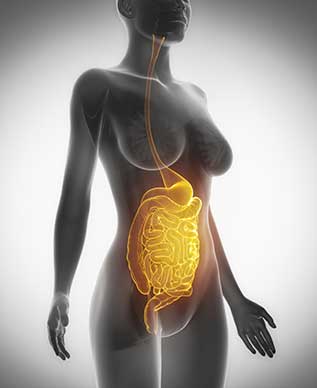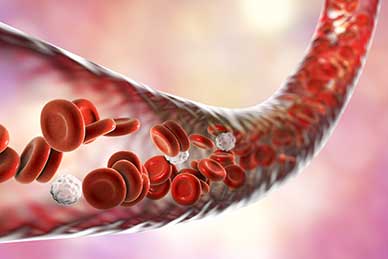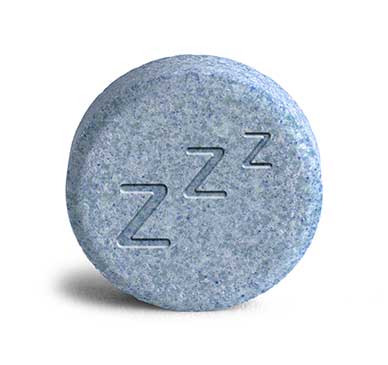If you are like many modern people, you spend much of your life avoiding the sun. We all have heard about the links between ultraviolet light exposure and skin cancer. As a result, even sun worshipers now take precautions to protect their skin from these harmful rays. We wear sunscreen on a daily basis and cover ourselves with hats and long sleeved shirts. However, this avoidance of sunlight may be leading to epidemic levels of vitamin D deficiency.
The Importance of Vitamin D
Vitamin D is one of the most important vitamins, needed for a variety of crucial cell processes. Without it, our immune systems cannot function properly and our teeth become weak. Our nerve and muscle function suffers as well. Most importantly, it is essential in absorbing calcium and maintaining strong bones. Without enough vitamin D, children can develop rickets, a condition in which their bones become so soft that they bend and become malformed. In adults, vitamin D deficiency can lead to weak muscles, as well as osteomalacia and osteoporosis, conditions in which bones become brittle and weak, easily prone to fractures.
Vitamin D is indeed necessary for good health, but it is available in only a small number of foods. This vitamin can be also synthesized in our own skin cells using ultraviolet rays from direct skin exposure. Historically most people got their vitamin D this way. However, in a modern world where an increasing number of people work to reduce ultraviolet light exposure, an equally increasing number are deficient in this important vitamin.
Sunscreen and Vitamin D Deficiency
The recommended daily allowance of vitamin D set by the government is 600 IU for children and adults, with adults age 70 and over needing 800 IU. However, this goal may be too low. New research estimates that modern people who do not receive a great deal of direct unprotected sunlight may need as much as 10 times this amount. The daily allowances were based on a population that gets much more sun exposure than we currently receive. Modern sunscreen use is estimated to reduce vitamin D production in the skin by as much as 99 percent, leaving many people deficient in this key nutrient.
Sunscreen is not the only culprit in our collective vitamin D deficiency. Several diseases that are common in the modern world also can make it difficult for the body to absorb vitamin D from the diet. These include digestive diseases along with chronic kidney disease and even the common type 2 diabetes. These together may be responsible for as many as one million cases of vitamin D deficiency worldwide every year.
 In addition, people with certain diets are at risk of a vitamin D deficiency because they do not take in enough vitamin D-rich foods. These at-risk diets include vegan diets as well as diets lacking dairy products, which are fortified with this vitamin.
In addition, people with certain diets are at risk of a vitamin D deficiency because they do not take in enough vitamin D-rich foods. These at-risk diets include vegan diets as well as diets lacking dairy products, which are fortified with this vitamin.
Could You Be Deficient?
Are you one of the many people who are not getting enough vitamin D? A blood test is the only definitive way to diagnose this, but there are a few signs and symptoms that you can watch for as well. These include:
- bone pain
- muscle weakness
- fatigue
- increased infections, especially respiratory infections such as colds and pneumonia
- depression
- low metabolism
- foggy thinking
If you or a loved one have these symptoms, it may be time for a visit to the doctor. You can also find ways to increase your vitamin D intake to see if this relieves your symptoms.
Getting More of the Sunshine Vitamin
The obvious way to get more vitamin D is to get more unprotected sun exposure. However, there are downsides to this as well, including sunburns, accelerated aging and increased rates of skin cancer. If you are not willing to give up your sunscreen, there are several ways that you can get enough of this important nutrient. First, consider getting a vitamin D lamp. These emit wavelengths of light that cause your skin to produce vitamin D, but in controlled amounts that are less likely to cause damage.
Second, add more vitamin D-rich foods to your diet. These include fortified products such as milk, other dairy products, orange juice and soy milk. There are also foods that are naturally high in vitamin D such as beef liver, egg yolks and fatty fish like salmon and tuna. Last, many people take a vitamin D supplement to get the vitamin D that they need without spending time in the sun or changing their diet.
The links between sunscreen and vitamin D deficiency are concerning when we consider how many people are taking steps to protect themselves from the sun. However, there are many ways to get enough of this nutrient in your diet and maintain good health for a lifetime. Whether you decide to spend more time in the sunshine, add vitamin D-rich foods to your plate or simply take a daily vitamin, you can ensure that you get all of the positive health benefits of this important vitamin.
 Many studies have come out recently about the importance of your gut microbiome, which consists of the colonies of diverse bacteria that live in your gastrointestinal tract. We are beginning to realize that these bacteria
Many studies have come out recently about the importance of your gut microbiome, which consists of the colonies of diverse bacteria that live in your gastrointestinal tract. We are beginning to realize that these bacteria  Although there is significant controversy about the role of saturated fat in heart disease, most doctors and experts agree on several lifestyle changes intended to improve cardiovascular health. Eating a plant-based, whole foods diet is one of the best things you can do for your health, as it cuts back on “bad” fats and additives while ensuring that you get enough vitamins and healthy fats. Taking a walk, as the study authors suggested, also is a lifestyle decision that will improve heart health and mental health at the same time.
Although there is significant controversy about the role of saturated fat in heart disease, most doctors and experts agree on several lifestyle changes intended to improve cardiovascular health. Eating a plant-based, whole foods diet is one of the best things you can do for your health, as it cuts back on “bad” fats and additives while ensuring that you get enough vitamins and healthy fats. Taking a walk, as the study authors suggested, also is a lifestyle decision that will improve heart health and mental health at the same time.  Why do modern people
Why do modern people  The heart is not the organ that can suffer when people do not get enough sleep. Having insomnia leaves people at a
The heart is not the organ that can suffer when people do not get enough sleep. Having insomnia leaves people at a  Several studies on quercetin have linked it to
Several studies on quercetin have linked it to  Quercetin is present in a wide variety of antioxidant-rich foods, including:
Quercetin is present in a wide variety of antioxidant-rich foods, including: There are many downsides to the medications available on the market to help people sleep. Sleeping pills can sedate you and make it difficult to wake up in the morning or in the case of an emergency. Accidental overdose is a very real and worrisome possibility as well. This is especially true for people with respiratory diseases such as asthma. Sleeping pills can be addictive or habit-forming as well. People who use them may find that they work at first, but that the effects become smaller and smaller. People who try them often find themselves taking increasing amounts of sleep medications to get the same or even smaller effects.
There are many downsides to the medications available on the market to help people sleep. Sleeping pills can sedate you and make it difficult to wake up in the morning or in the case of an emergency. Accidental overdose is a very real and worrisome possibility as well. This is especially true for people with respiratory diseases such as asthma. Sleeping pills can be addictive or habit-forming as well. People who use them may find that they work at first, but that the effects become smaller and smaller. People who try them often find themselves taking increasing amounts of sleep medications to get the same or even smaller effects.